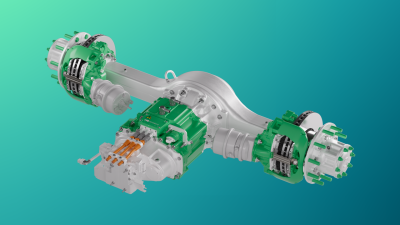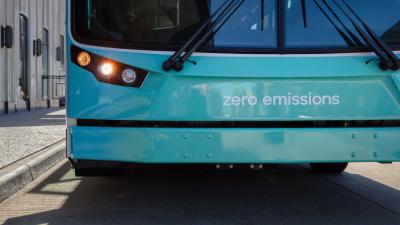Fuel Cells
Dynamic performance: variable pressure's impact on heavy-duty truck fuel cell engines
With the rise of fuel cell engines powering heavy-duty transport trucks, the utilization of air compressors for variable pressure cathode air delivery has emerged as a crucial factor for optimizing vehicle performance. This technology offers quantifiable benefits, spanning from enhanced efficiency and extended lifetime to increased power density and reduced operating costs. Studies have revealed that variable pressure cathode air delivery can elevate fuel cell system efficiency by up to 15%, primarily by refining the control of oxygen concentration at the cathode, thereby optimizing the electrochemical reaction.[1]
What is variable pressure cathode air delivery?
A variable pressure air compressor allows for the adjustment of the air supply to the cathode, a pivotal component where the chemical reaction occurs within the fuel cell engine. This flexibility in controlling airflow is like the delicate balance required when inflating a balloon—too much pressure risks bursting, while too little yields inadequate inflation.
Similarly, in fuel cell engines, achieving the precise mixture of air and fuel is imperative for the electrochemical reaction that generates electricity. By fine-tuning the airflow, variable pressure cathode air delivery ensures optimal performance and efficiency within the fuel cell system.
The much-needed spotlight is now on clean and sustainable transportation solutions, so let's explore four ways variable pressure technology in fuel cell engines benefits heavy-duty trucks.
Adaptability to varying load conditions
The load of a heavy-duty truck can fluctuate significantly, from empty to fully loaded, and anywhere between. According to ACT Research, 70% of the tractor-trailers on the road today “cube out” (the trailer is full, and no more freight can be loaded) as opposed to 30% of units that “gross out” (the combined weight of the tractor-trailer is at the maximum legal weight). This makes managing load conditions a top consideration for adopting fuel cell engines.
Variable pressure technology allows fuel cell engines to adjust their performance according to load conditions. When the truck is heavily loaded and requires more power, the system increases the pressure to deliver the necessary oxygen to the fuel cells, ensuring optimal performance. During lighter loads, the pressure can be reduced to conserve energy and maintain efficiency.
Optimized fuel efficiency
Heavy-duty trucks encounter various terrains and driving conditions over long distances. This can put a strain on fuel efficiency as the truck exerts more power to drive forward. A truck powered by a fuel cell engine using variable pressure system can precisely control the amount of air supplied to the fuel cell stack. By matching the airflow to the engine's demands, the system minimizes wasteful energy consumption, resulting in extended driving range and reduced fuel costs.
Consistent and reliable performance
Consistency and reliability are vital when a heavy-duty truck is driving long distances, where it is subjected to rigorous demands from start to finish. Variable pressure control ensures the fuel cell engine operates consistently for the entire route. This stability enhances the truck's overall performance, providing smooth acceleration, reliable power delivery, and consistent operation regardless of external factors.
Improved durability and longevity
Vehicle wear-and-tear is normal and due to their rigorous load-bearing work cycles and long routes, heavy-duty truck engines endure a significant amount during their operational lifespan. Variable pressure systems help mitigate this by reducing stress on the engine components. By automatically adjusting the air supply based on load conditions, the system prevents overworking the engine, leading to less wear on critical parts and extending the truck's longevity and reducing maintenance needs.
In pursuing cleaner, more efficient energy solutions, fuel cells are already transforming many industries, from transportation to stationary power generation. Accelera's latest generation fuel cell engine, the FCE300, is ready to accelerate the shift to cleaner transportation. Incorporating not only variable pressure air delivery technology but also advanced proton exchange membrane (PEM) stack technology a seamlessly integrated balance-of-plant system, onboard controls, and diagnostics, the FCE300 is a testament to continuous innovation. Engineered with reliability and modularity at its core, the FCE300 is purpose-built for the rigors of heavy-duty on-highway applications, embodying a commitment to modularity, integration ease, and serviceability.
[1] Source: Zhang, X., et al. "Dynamic Performance Analysis of a Proton Exchange Membrane Fuel Cell System with Variable Cathode Air Flow Rates." Journal of Power Sources, vol. 362, 2017, pp. 77-85

